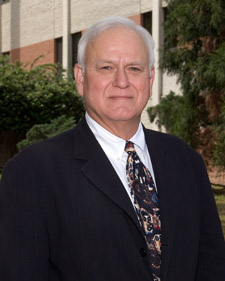 |
Dr. Steven Picou |
New understanding of the social and mental health impacts of last year’s Deepwater Horizon oil spill on south Mobile County residents has come to light following a University of South Alabama research collaboration that compares the disaster to the 1989 Exxon Valdez spill in Cordova, Alaska.
Dr. Steven Picou, a professor of sociology at USA, joined Duane Gill of Oklahoma State University and Liesel Ritchie of the University of Colorado at Boulder in a $36,000 National Science Foundation study that found spill-related psychological stress in south Mobile County five months after the event was relatively high and similar to that of residents in Cordova five months after the Exxon Valdez spill.
The study focused on residents of Bayou La Batre, Dauphin Island and numerous other rural communities in south Mobile County. A sample of more than 400 residents age 18 or older responded to a random telephone survey modeled after research done following the Exxon Valdez spill. The Mobile County survey was administered by the University of South Alabama Polling Group in September 2010 and included those who had lived in the area for more than one year.
Additional findings of the survey included:
- If the trends observed in Cordova hold true for Alabama, significant spill-related psychological stress can be expected to continue in south Mobile County over the next decade.
- One-fifth of south Mobile County respondents were in the severe stress category and another one-fourth were in the moderate range. The finding was similar to the sample from Cordova in which more than one-half of residents were classified as either severe or moderate.
- Higher levels of event-related psychological stress among south Mobile County residents were consistently related to family health concerns, economic loss, concern for future economic loss, ties to ecosystem resources and exposure to oil.
- Four out of 10 respondents (43 percent) reported a commercial connection to coastal resources, and those with connections to damaged/threatened resources were more likely to experience higher levels of stress.
- People in lower income categories and with lower levels of education were more likely to experience high levels of stress.
- Approximately one out of three respondents experienced some type of exposure to oil, and such exposure was significantly related to higher levels of stress.
- Sixty-six percent of respondents reported negative spill-related economic impacts on their households.
- Fifty-six percent of respondents indicated concern about the threat of economic loss; this was also significantly related to higher levels of stress.
The research team also found that residents with commercial ties to damaged natural resources suffered the greatest impacts.
Based on what the scientists have learned from years of sociological study in Cordova, they warn that it may be many years before south Mobile County residents rebound from the Gulf disaster.
“Given the social scientific evidence amassed over the years in Prince William Sound, Alaska, we can only conclude that social disruption and psychological stress will characterize residents of Gulf Coast communities for decades to come,” the researchers stated in a summary of their findings.
The long recovery is due in part to the nature of technological disasters, the scientists said. Unlike hurricanes and other natural disasters, technological disasters pose a unique challenge.
“Technological disasters, like the BP spill, are characterized by a series of anthropogenic secondary disasters that unfold over time,” Picou said. “For Gulf Coast residents these include the inadequate clean-up, the controversial use of dispersants, the complex and frustrating claims process and emerging litigation.
“For example, BP attorneys just rejected all legal claims for losses due to the banning of drilling and for boat damages to vessels hired for the clean-up. Such economic and legal issues will become sources of disruption and stress well into the future.”
Picou has studied the impact of the Exxon Valdez oil spill for more than two decades, examining the long-term social consequences of the spill and, most important, the community impacts of 20 years of adversarial litigation which resulted from the massive contamination of Prince William Sound in South Central Alaska. He is also involved in a five-year project on community recovery from Hurricane Katrina.
Over the last year, Picou has traveled throughout the Gulf Coast collecting data on the community impacts of the BP spill and conducting peer listener training sessions for local volunteers. In March, he was interviewed by The New York Times regarding mental distress in the aftermath of Japan’s devastating tsunami and subsequent radiation leak.
The results of the south Mobile County study will be published in upcoming editions of the journals American Behavioral Scientist and Contexts.
To learn more about Picou and his work, visit www.stevenpicou.com |

